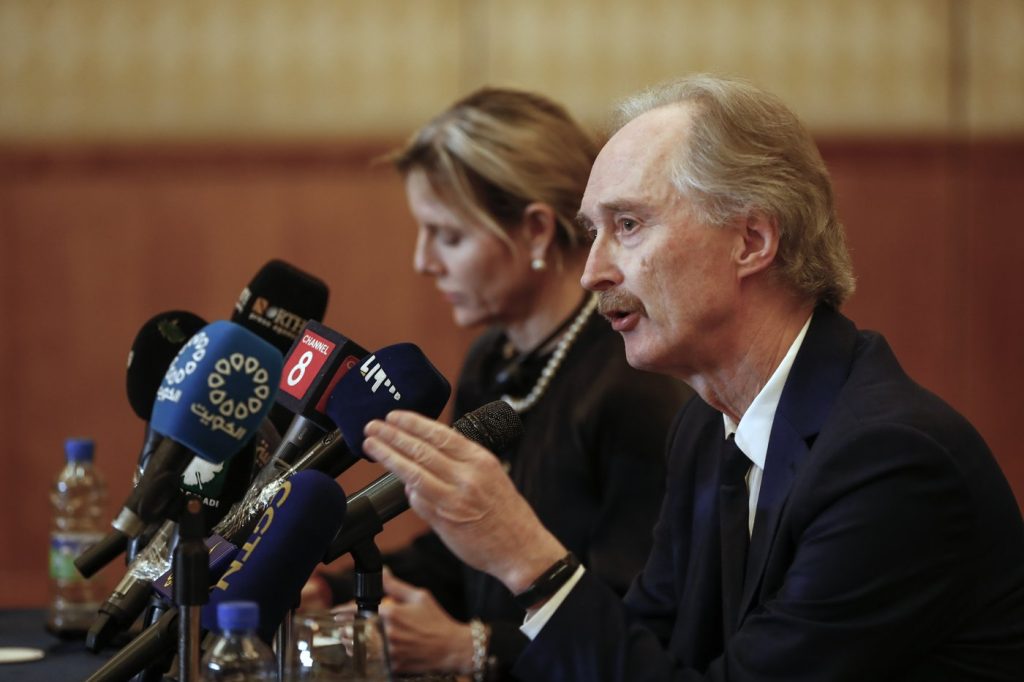DAMASCUS, Syria (AP) - The establishment of an inclusive government in Syria over the coming weeks will play a significant role in determining whether Western sanctions are lifted, as the country begins the process of rebuilding following the ouster of former President Bashar Assad. This statement was made by Geir Pedersen, the U.N. special envoy to Syria, during an interview in Damascus.
Pedersen expressed his hope that a genuinely new and inclusive government would be in place by March 1, which could facilitate the lifting of sanctions imposed by Western nations throughout Assad’s rule. He emphasized the importance of this development in enabling Syria to recover from nearly 14 years of civil war. Following Assad's removal in December, the main former rebel group, Hayat Tahrir al-Sham (HTS), established an interim administration, primarily composed of members from its previous "salvation government" in northwestern Syria.
The de facto authorities had announced plans to form a new government through an inclusive process by March. In January, Ahmad al-Sharaa, a former HTS leader, was appointed as Syria's interim president after a meeting that included most factions of the former rebels. In recent weeks, a committee has been meeting across various regions in Syria to prepare for a national dialogue conference, although an official date for the conference has yet to be set.
During his initial meeting with al-Sharaa, Pedersen noted that the interim government was intended to govern for a period of only three months. However, he stressed that the critical factor is not the exact timeline, but rather the commitment to an inclusive process that truly encompasses all segments of Syrian society. Western nations have maintained sanctions against Assad's regime, and officials from these countries are eager to observe whether the interim leaders will deliver on their promises regarding governance and the protection of minority groups.
The organizers of the upcoming national dialogue conference aim to involve all sectors of Syrian society, with the notable exception of Assad loyalists and the Kurdish-led Syrian Democratic Forces (SDF). The SDF has resisted dissolution or integration into the new national army and is currently negotiating with the central government. Pedersen expressed hope for a political resolution to the ongoing deadlock with the SDF.
Additionally, Pedersen conveyed concerns over a potential security vacuum following the disbandment of the previous national army and security apparatus by the country's new leadership. He underscored the urgency of establishing new state structures rapidly, noting the importance of offering alternative employment opportunities for those no longer serving in the military or security forces, to ensure that they do not feel alienated from Syria's future.
Furthermore, the U.N. envoy addressed concerns related to Israel's actions within Syrian territory since Assad's fall. The Israeli army has seized a U.N.-monitored buffer zone in the Golan Heights, established by a 1974 ceasefire agreement, and has made incursions beyond this zone. The U.N. has indicated that such actions violate the agreement, while Israeli officials argue that their military presence is a temporary measure for national security.
Pedersen remarked that the security issues are being addressed appropriately, asserting that there is no valid reason for Israel to maintain its presence in Syria. He succinctly stated, "The solution is very simple. The Israelis need to withdraw."










